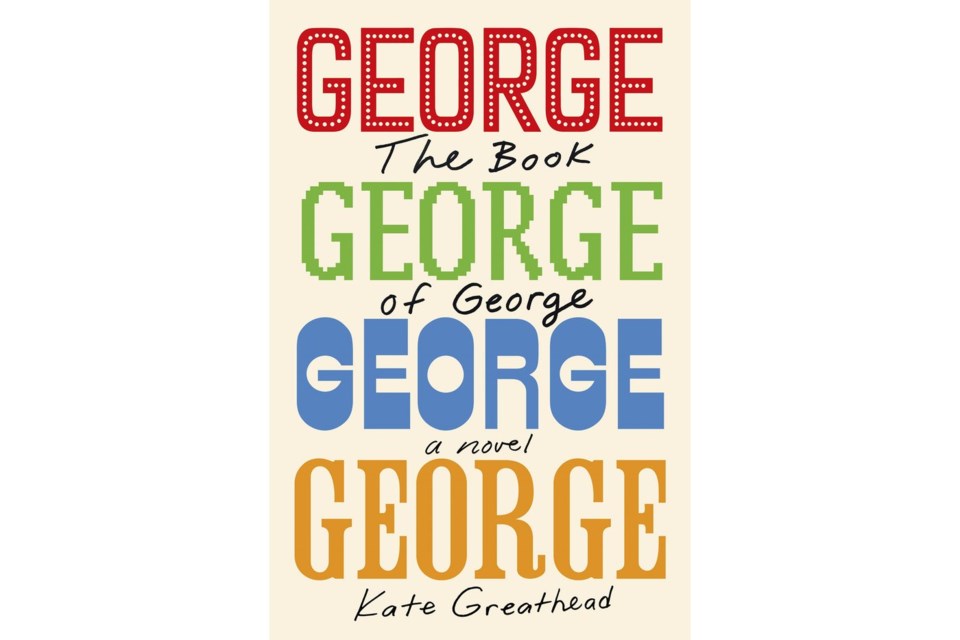“The Book of George” is a novel of many finely crafted, often funny moments that arrive episodically as the title character grows older. At first he’s a millennial kid, then a college guy as the Twin Towers fall on 9/11.
In time George — he’s given no surname — graduates and struggles over what to do with the rest of his life. Fate actually treats him pretty well. He’s an attractive, smart New Yorker; his family has some money; and he’s often quite lucky.
But you wouldn’t know it from his clownish, sour, perplexed, defeatist attitude. He’s self-absorbed and self-disparaging, lovable and devilish — the list could go on.
The novel’s author, Kate Greathead, is a gifted storyteller who reels off dialogue filled with wit and humor so well it makes page-turning a pleasure and “The Book of George” an easy read.
But just as the indecisive George doesn’t know where he is going in life, the reader doesn’t know where his story is going either. Getting there, in a way, is the point.
George groans inwardly at the vacuous “sitcom-level banter” that comes easily to him in conversation. Greathead is deft at dishing out such dialogue, too, and chapter after chapter, as George ages and a variety of crises large and small arise, this episodic novel seems a form of first-rate TV sitcom between covers.
George would be glad to call it “the show about nothing,” similar to “Seinfeld.” Then he would cancel it.
Choosing philosophy as his college major, George writes his thesis on Arthur Schopenhauer, a 19th-century philosopher often seen as deeply pessimistic, much like George himself. Greathead, in the book’s epigraph, quotes from an 1807 letter written by Johanna Schopenhauer to her 19-year-old son, Arthur, whom she says could be “a credit to human society” but is nevertheless “irritating and unbearable.”
George’s own mother, Ellen, couldn’t have said it better.
After graduating, George eventually decides to become a writer. He starts a novel, but agonizes over the point of it. Early on, George says the book is “about a boy who grows up to be a man who is disappointed by life.” The book shifts gears over time. It’s title, finally, is “All For Naught.”
George may be a doom-and-gloom sort, but that’s not the case for Greathead’s novel. Page after page, her writing is full of humor built around prickly sarcasm and woebegone twists in George’s life.
There are serious, even sad, moments, plus plot turns that give the narrative depth. The reader may begin to feel an emotional tug. Jenny, a young woman who falls in love with George, lives with him for long, often agonizing stretches. They hit midlife as the pandemic hits the country, and Jenny brings real poignancy to the story.
She even grasps, finally, what George is all about.
___
AP book reviews:
Kendal Weaver, The Associated Press




